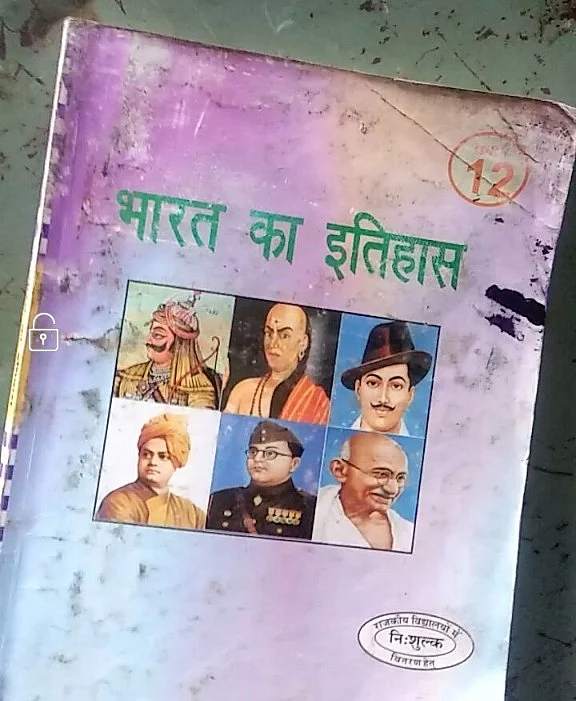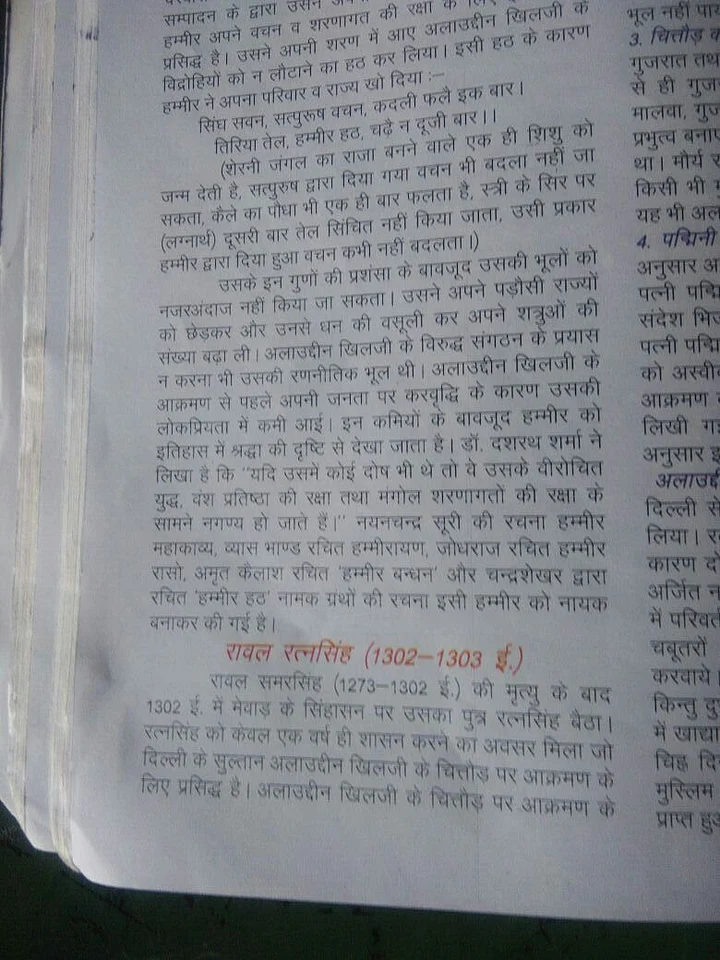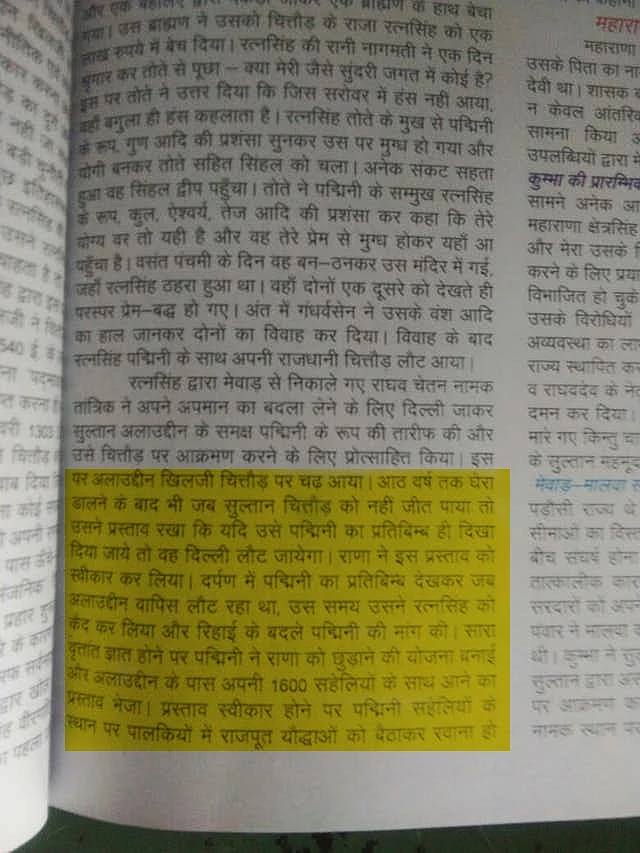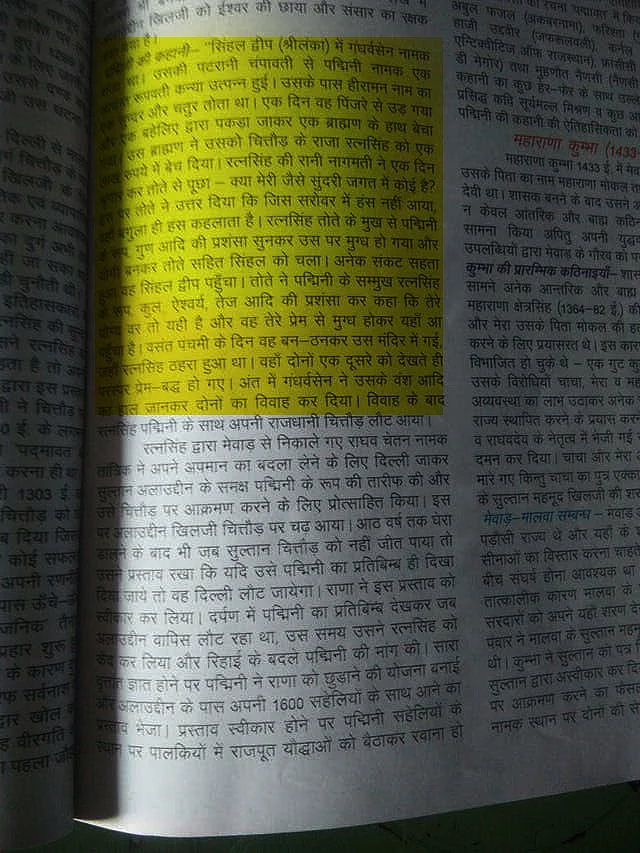The raging debate around Sanjay Leela Bhansali’s Padmavati shows no signs of cooling down. At the most basic level, those opposing the negative criticism of the film are basing their argument on the fact that the story is a folklore, not rooted in real incidents.
However, the incident is very much a part of history books in Rajasthan and is being treated as a real incident, so much so that on Friday, Rajasthan’s education minister Vasudev Devnani stated that the Rajasthan Board of Secondary Education (RBSE) will “weed out any inaccuracies” regarding Padmavati in the state’s history text books.
So, what exactly do the state’s textbooks say?
“A Sinhalese Princess”
The class 12 textbook titled “Bhaarat ka Itihaas” has a chapter called “Mughal Akraman: Prakar Aur Prabhav” on the Mughal invasion and expansion in India. In the chapter, Padmini is termed as a princess from ‘Sinhal Dweep’ or erstwhile Sri Lanka, who was the daughter of the king of Gandharva. It was her pet parrot Hira-mani who told Raja Ratan Singh about her “unparalleled beauty”, and therefore, he traveled to the island to wed her and then brought her to Chittor.
The book goes on to state that it was a banished member of Ratan Singh’s court who went to Alauddin Khalji, and in order to extract revenge, he instigated him to attack Chittor on the pretext of taking Padmini from the Rajput king.
“A Glimpse and a Capture”
“Eight years after surrounding Chittor, Khalji could not capture it and asked Ratan Singh to show him a glimpse of Padmini so he could return to Delhi. Khalji saw Padmini’s reflection in the mirror and captured Ratan Singh, asking for Padmini in exchange for his release”, the chapter continues.
Padmini hatched a plan to free Ratan Singh. She reached Khalji in Delhi with 1,600 friends, who happened to be Rajput soldiers hidden in palanquins. Padmini asked to see her husband for the last time which Khalji allowed, and that was when the soldiers attacked his army. Khalji killed Ratan Singh when he got to know of the attack, and it was then that Padmini committed jauhar.Class 12 RBSE Textbook
“Modern Historians Refuse to Accept History”
The book goes on to state that it was “Malik Mohammed Jayasi who was the first to mention the incident of Padmini”, but does not mention any source before him. It also mentions other contemporary scholars like Abu’l Fazl who recorded the incident, but those were also recorded 200 years after the alleged incident took place.
Modern historians are chastised by the book’s authors for refuting the historical incident and calling it just a folklore.
Those protesting, claiming that history is being distorted in the book, have three main points of contention. The first being that Padmini was not Sri Lankan, but from Rajathan; that the attack on Chittor was done to capture Padmini and not for political expansion; and Khalji could not have seen Padmini in the mirror as there were none back then.
(Breathe In, Breathe Out: Are you finding it tough to breathe polluted air? Join hands with FIT in partnership with #MyRightToBreathe to find a solution to pollution. Send in your suggestions to fit@thequint.com or WhatsApp @ +919999008335)
(At The Quint, we question everything. Play an active role in shaping our journalism by becoming a member today.)




